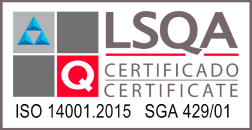The effects of air pollution are a public health issue that we cannot ignore. A significant portion of this pollution comes from volatile organic compounds (VOCs), a group of chemical substances released through the use of fossil fuels, wood burning, and other human activities. Among the VOCs, benzene stands out for its ubiquitous presence and potentially harmful effects on human health.
Recognizing the need for decisive action in this area, the Ministry of the Environment of Chile has taken a groundbreaking step. It has published the first primary air quality standard for benzene, a volatile organic compound, in the country.
This standard is stricter than those of the European Union and New Zealand.
This regulation has set a limit that places it among the most rigorous globally, demonstrating Chile’s commitment to protecting the health of its citizens and preserving the environment. The standard, which has been officially published in the Official Gazette, sets a value of 3 micrograms per cubic meter (µg/m3N) as the annual concentration of benzene. This limit is stricter than those established by the European Union and New Zealand and is on par with that of Japan, a nation known for its rigorous air quality standards.
In addition, the regulation is not limited to long-term prevention. It also includes emergency levels, measured as a one-hour concentration, designed to reduce the population’s exposure to high concentrations of benzene in the air. These levels are divided into Alert (30-59 µg/m3N), Pre-Emergency (60-119 µg/m3N), and Emergency (120 µg/m3N or higher).
Towards a Just Socio-Ecological Transition.
Deputy Secretary of the Environment, Maximiliano Proaño, has emphasized that the publication of this standard is a significant milestone for the country. Not only does it provide an additional tool to protect people’s health, especially in areas historically affected by pollution, but it is also an integral part of the government-driven Just Socio-Ecological Transition process.
This new standard is the result of commitments made to the communities of Concón, Quintero, and Puchuncaví, established within the Atmospheric Decontamination Prevention Plan (PPDA) for this area. However, although the standard focuses on this priority area, its scope will be nationwide, protecting citizens across the country.
The standard also considers BTEX.
The standard also considers other VOCs, such as toluene, ethylbenzene, and xylenes, which, together with benzene, make up the BTEX. Data from these compounds will be taken into account during the standard review process, ensuring comprehensive VOC supervision. The Superintendency of the Environment will be in charge of overseeing and ensuring compliance with this regulation.
The primary air quality standard for Arsenic is under development.
This regulation is just one of the 40 concrete actions that the government is implementing in the municipalities of Concón, Quintero, and Puchuncaví, in a concerted effort to support the transition towards a more equitable model in social and environmental terms.
Deputy Secretary Proaño stressed that “for our government it is necessary to generate the basis for a transformation of the current conditions of these territories.” This process involves transitioning towards a development that prioritizes the care of people and the environment through concrete measures. The new benzene standard is a notable example of these measures, but it is not the only one. Other important standards, such as those related to arsenic, emissions from thermoelectric plants, and air quality in Quintero Bay, are currently under development.
Implementation of monitoring networks.
In addition to these regulations, the government is also installing monitoring equipment that will complement the work of the new public network. These devices will allow more effective air quality tracking and will help ensure compliance with new regulations. This is complemented by coordination with different institutions to provide greater protection to affected communities.
This comprehensive and decisive action by the Chilean government reflects an acknowledgment of the importance of a proactive, long-range approach to addressing air quality issues. Benzene and other VOCs are persistent and complex problems requiring equally persistent and complex solutions. With the implementation of these new regulations and measures, Chile is demonstrating its commitment to the health of its citizens and the protection of its environment.
Towards a healthier and more sustainable future.
The publication of this first standard on volatile organic compounds is a significant milestone in the management of air quality in Chile. But more than that, it signals that the country is ready to assume a leadership role in the global fight against air pollution and its impact on human health and the environment.
The road to better air quality and a healthier environment will not be easy, but with measures like this one, the future looks a little cleaner and safer for everyone. Together, we can work towards a healthier and more sustainable future.











